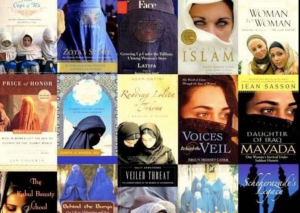A very interesting development involving the water of Zam Zam. After smuggling some out and having it tested, some British scientists are contending that it's so high in arsenic as to be "poisonous."
For those that don't know, Zam Zam is a Meccan well to whose waters Islamic tradition imputes miraculous properties (something like Lourdes for Catholics). Muslims around the world seek out bottles of the water and pay a pretty penny for it.
Of course, from a believer's standpoint, the presence of high levels of arsenic isn't necessarily a big deal. If you believe in its miraculous properties and that these properties' benefits outweigh any harm caused by that particular level of arsenic, then this becomes trivial.
And I can imagine one other solution. While I'm not a scientist, I assume it's not inconceivable that there could be some rare combination of chemicals that mitigate or even completely reverse the harmful effects of arsenic. For example, I've read of birds that instinctively consume small quantities of mineral in their environment to counteract a toxin that they routinely consumed.
Now that this admittedly sensitive issue has been raised publicly, it would be interesting if some kind of scientific trials to determine whether the net effect is harmful.
Don't know much about the textual evidence for its reputed benefits and whether its being proven to be unhealthy would really poses any theological problems to Muslims.
The other interesting question this raises is whether, from a traditional believing standpoint, a divinely blessed object can be corrupted or counteracted by worldly actions (e.g., from a Catholic standpoint, if the Shroud of Turin or a piece of the True Cross were exposed to radiation or a deadly chemical agent like anthrax). Would there be a tipping point at which something stops blessing you? The question pershaps sounds like something you'd hear on The X-Files or in a comic book, but if such extraordinary objects really do exist in the real world, one would expect them to be subject to (or at least interact with) natural laws to some extent.
BBC News – Contaminated 'Zam Zam' holy water from Mecca sold in UK
Holy drinking water contaminated with arsenic is being sold illegally to Muslims by UK shops, the BBC has found.
"Zam Zam" water is taken from a well in Mecca and is considered sacred to Muslims, but samples from the source suggested it held dangerous chemicals.
Tourists can bring back small amounts from Saudi Arabia, but it cannot be exported for commercial use.
An undercover researcher found large quantities of bottles being sold in east and south London, and in Luton.
The president of the Association of Public Analysts said he would "certainly would not recommend" drinking it.
Assuming this is true, I wonder whether this can be traced to mismanagement of the environment by the Saudis. Of course, they've long distinguished themselves by hurting people's spiritual and intellectual health through the export of bad theology and pseudo-scholarship–and their relentless know-nothing assault on shrines and places of beauty within the birthplace of Islam have greatly, criminally impoverished the Ummah's patrimony–so it would sort of be fitting if they even managed to make even the miraculous waters of Zam Zam unhealthy. Consider it the reverse Midas touch.
I've had Zam Zam water, of course. Didn't notice anything special about it, but then I generally don't notice the flavor of the water I drink. Nor did I notice a health change either way, but then I'm not very observant about such things, either. So who knows…
Update (2011-06-12): It just occurred to me that my backgrounder on the spring of Zam Zam was pretty incompetent since it neglected to mention the place's most critical associations for Muslims. I’ll let the Wiki entry sum it up for me:
The Well of Zamzam (or the Zamzam Well, or just Zamzam; Arabic: زمزم) is a well located within the Masjid al-Haram in Mecca, Saudi Arabia, 20 m (66 ft) east of the Kaaba,[1] the holiest place in Islam. According to Islamic belief, it was a miraculously-generated source of water from God, which began thousands of years ago when Abraham's (Ibrāhīm) infant son Ishmael (ʼIsmāʻīl) was thirsty and kept crying for water and was kicking at the ground when water gushed out. Millions of pilgrims visit the well each year while performing the Hajj or Umrah pilgrimages, in order to drink its water.











